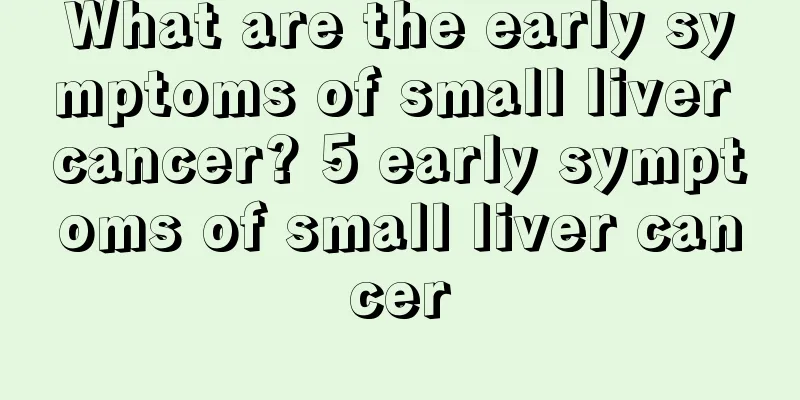Diffuse echogenic changes in the thyroid gland

|
What should I do if diffuse echo changes of the thyroid gland are found during a thyroid examination? In fact, diffuse echo changes in the thyroid gland are just a description of ultrasound examination and cannot determine which disease causes it. If patients want to determine whether they have a thyroid disease, they need to combine other test results, such as thyroid function tests, for a comprehensive diagnosis. Diffuse thyroid disease is a disease of the thyroid gland. Clinically, common types of diffuse thyroid disease are nodular goiter (hereinafter referred to as nodular goiter) and thyroid cancer (hereinafter referred to as thyroid cancer). , Hashimoto's thyroiditis (hereinafter referred to as Hashimoto's disease), Graves' disease, etc. Because the treatment plans for each disease are different, it is necessary to Qualitative diagnosis of such diseases before treatment. 1. General care 1. Get adequate rest and exercise. When clinical symptoms are significant, bed rest should be the main focus. Activities should be restricted 1 to 2 hours after meals, especially. When clinical symptoms are significantly improved, appropriate activities or physical exercise should be performed while paying attention to rest, but excessive fatigue should be avoided. If there are no clinical symptoms and all laboratory tests are normal, activities can be unrestricted. 2. Emotional care Traditional Chinese medicine believes that a person's mental state is closely related to the body's internal organs, qi and blood , and a person's emotional activities are closely related to the function of the heart to store the spirit. Patients who are energetic and cheerful generally have better therapeutic effects, otherwise it will be worse. Therefore, in nursing, we must care and be considerate of patients, talk with them more, understand their mental state, and guide them to let go of their doubts. 3. Diet care The diet should be based on the principles of high calories, high protein, high vitamins, moderate fat and sodium salt intake, and less spicy and irritating condiments. The food should be soft, easy to digest, and rich in nutrition. Do not eat too much high-iodine food, such as: jellyfish, kelp, seaweed, seaweed and algae foods, etc., to prevent poor control of hyperthyroidism. No smoking, no drinking, no strong tea or coffee . (l) Provide adequate carbohydrates and fats. Carbohydrates and fats have the effect of saving protein. If they are supplied in sufficient quantities, protein can play its unique physiological functions. Provide adequate vitamins and inorganic salts. Vitamins and inorganic salts can regulate physiological functions and improve body metabolism, especially vitamin B and vitamin C. Adequate calcium and iron should be given to prevent deficiency. (2) Appropriately increase the intake of animal offal, fresh green leafy vegetables, or vitamin supplements. (3) Appropriately control the intake of foods high in fiber. Hyperthyroidism patients often suffer from diarrhea, and excessive supply of fiber-rich foods will aggravate the diarrhea. 4. Condition care The main purpose is to observe whether there are symptoms of high metabolic syndrome in the whole body, whether the thyroid gland is enlarged, whether the eyeballs are bulging, whether there are abnormalities in the nervous system, cardiovascular system, digestive system, blood system, reproductive system, and motor system, and whether there are abnormal symptoms such as edema, flushing, dampness, and swollen fingers in the skin and extremities. Pay special attention to changes in body temperature and cardiovascular system to prevent the occurrence of hyperthyroid crisis and hyperthyroid heart disease. 5. Symptomatic care When using Western medicine for treatment, pay attention to age, gender, and condition when selecting thyroid medication. During treatment, pay attention to observe changes in the condition, whether there is allergy to thyroid medication, drug rash, liver damage, leukopenia, and regularly check liver function and blood routine. When using traditional Chinese medicine for treatment, you should pay attention to the method of decocting and taking the medicine, as well as the taboos during the medication process. |
<<: How much Helicobacter pylori is considered excessive
>>: Diffuse abnormal echo of thyroid gland
Recommend
Which one is better for helping you sleep, cassia seed or lavender
Cassia seed is a traditional Chinese medicine tha...
What are some tips for preventing heatstroke and cooling down
The weather is hot in summer and many people are ...
Only by choosing the right method can patients with colorectal cancer be treated
As the number of patients with colorectal cancer ...
Can a pregnancy blood test detect stomach cancer?
Can a pregnancy blood test detect stomach cancer?...
What is the formula of glutinous rice glue
Glutinous rice glue is a non-toxic, odorless and ...
Why do my calves ache after skipping rope?
Rope skipping is a form of exercise and entertain...
What method can diagnose liver cancer? This technology is the most accurate in diagnosing liver cancer
The hepatic CT perfusion imaging (HCTpI) technolo...
Is gravel harmful to the human body?
Common sites for stone growth include kidney, ure...
The difference between liquid foundation and primer
Cosmetics are indispensable for women, especially...
How to remove oil stains from clothes
I believe that many friends are very troubled by ...
What are the types of pituitary tumors? Common symptoms of pituitary tumors
Pituitary tumors are divided into growth hormone-...
Five tips to keep you cool in summer
It’s scorching hot and the real summer has arrive...
Is it good to wash your face with cold water in winter?
The weather is quite cold in winter, so people us...
How to treat chronic foreskin inflammation?
Chronic balanitis is a relatively common male dis...
What are the benefits of cupping?
Cupping is a method of treatment in Traditional C...









